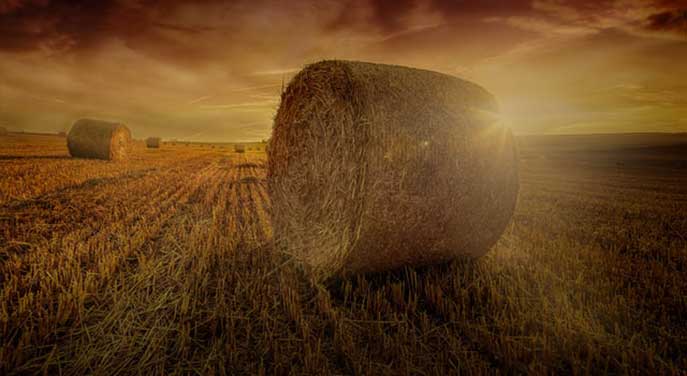 I recently visited my mom in Saskatchewan, in a little town up in what’s called the province’s northeast but really isn’t. It’s the parkland border between farms and forests, no further north than Edmonton.
I recently visited my mom in Saskatchewan, in a little town up in what’s called the province’s northeast but really isn’t. It’s the parkland border between farms and forests, no further north than Edmonton.
The region is sparsely populated; if you drew a circle around Momstown with a 65-km radius, that circle would include maybe 10,000 people.
Out of that circle comes, every year, thousands of head of cattle, enough for, give or take, a million steaks and five times that many hamburgers. Enough grain comes out of that circle to feed a decent-sized city, and enough lumber comes out to build hundreds of houses. Statistically speaking, these are easy understatements.
At coffee row on a Wednesday morning, 40 heads popped up to see who came in; gazes lingered because it was a new guy. The place was a small sea of plaid, hoodies and curved-peak hats. It’s a place that would vacate into the street in 10 seconds flat if someone outside needed help.
I sat down to order breakfast. The menu is short on granola and yogurt. I go with the flow; I’m not about to make any waves in bacon and egg country.
I noticed that I was the only one eating; everyone else was there only apparently for the bottomless coffee cups that prize quantity over quality. The menu board helped explain why: the breakfast special that was $8 on the printed menu from maybe a year ago is now $12 on the sandwich board by the entrance. Around the corner at a grocery store, a four-litre jug of milk is $8.50. Inflation may be eight per cent in the government’s eyes, a number that’s helpful only in the sense that it actually quantifies the obscenely large gap between the bureaucrat’s theoretical and the working person’s reality.
My brother lives in the same small town; he was stranded at home waiting for a new alternator for his truck. Parts that used to be in stock are now on order, and the simplest thing can grind one’s mobility or an industrial process to a halt immediately.
There’s no public transportation, there are no taxis, and supply chains become more fragile the further one gets from large centres.
True, it’s a small community, but anyone who cares to venture more than a few hours from a major urban centre will know these places are the backbone of the country. The output of goods per person is a staggeringly high number. Sit down with a farmer and learn how many loaves of bread come from 3,000 planted acres at 50 bushels per acre and you will be stunned: that farm would produce about 13,500,000 loaves of whole-wheat bread per year.
The place is hurting. Restaurants charge outrageous new prices because they have to, so few eat out. People are hunkered down and spending on essentials (coffee row appears to be the extent of the social scene spending), so stores suffer. People travel less and do less. Fuel is a precious lifeblood for which there is no substitute.
Many have no love for oil companies, living the common fallacy of high oil prices being a plot by said companies to gouge consumers. This fallacy is a gift from a petroleum industry that seems totally and permanently inept at explaining itself. Winning a court case every few years where no one could prove you weren’t gouging consumers is not the backbone of a wise strategy, yet it goes on forever and no one learns.
So here we are. These producers-of-things would ditch gasoline in a heartbeat if they could. But they can’t and they know it, and because they live in a region where self-reliance can be life-saving, they’re acutely aware of the value of their fuel system despite any grumbling.
An imaginary circle around the province’s northeast would be about 13,000 square km, about two per cent of Saskatchewan. There are many such circles across Canada. Some produce no grain but a lot of minerals. Some produce no minerals but a lot of fish. Some produce a lot of vegetables. Some have small but vital manufacturers that keep big operators going.
These circles are in the background; the rural people, the truck drivers, the equipment operators, the welders. Most Canadians live in urban centres and only think of these places in the context of distant relatives or if someone in one of them snaps in a big way and the story makes the big news.
These places do what they do as conditions allow. Conditions are getting much more challenging. It’s hard to get many basic things, such as parts for equipment that won’t run without. Costs are going through the roof but income isn’t keeping up. The squeeze on people and businesses is palpable.
More fundamentally, the lifeblood of all this, affordable energy, is disappearing. These are diesel- and gasoline-reliant places. They’re more acutely aware of fuel costs, as are working-class people across the country, particularly those on the lower end of the income spectrum. “Just go electric” is a very unwelcome suggestion, along the lines of “Let them eat cake.”
They would turn their backs on hydrocarbons in a second if there was an alternative as reliable and worked as well in all conditions. But they also work with batteries more than anyone, and know those limitations acutely and painfully. There’s no blinding these people with BS. Things are accepted once proven.
The visit to the region is bittersweet. As a hydrocarbon worker, high commodity prices have brought a feeling of immense relief and corporate survival after several brutal years. But being in the country’s heartland, seeing the impacts of those high oil and gas prices is gut-wrenching. Women with little kids putting $10 worth in at the pump. Businesses idle or shut. The grocery store selling an awful lot of pasta and spaghetti sauce.
Not everyone is in dire straits. Some are booming, like fertilizer companies that sell whatever they can produce for a fortune. Grain and beef will be worth a lot more, and big, strong, financially stable farms will survive, as will entrenched businesses with sufficient reserves. But there’s a whole thick layer of our country’s humanity that will struggle mightily. Inflation pounds hardest on those least able to deal with it.
Is anyone in Ottawa going to do anything about inflation? by Franco Terrazzano
Families are getting soaked by higher prices while politicians are asleep at the wheel
And we live in Canada. These same food and fuel pressures are walloping billions in developing countries. As with liquefied natural gas (LNG), the West wins bidding wars, and will with foodstuffs also. All those circles of productivity around the world are on the ropes.
We ought to be flooding the market with fuel and we should be encouraged by governments to do so. Affordable, reliable energy brought us here and is a necessity to keep us here. Canada’s less populated circles won’t produce the vast quantities of things that they do if prices don’t come down.
But in urban centres far away, the laptop class is infinitely more interested in electric vehicles, cryptocurrency, COP26 and cartoon villains. This divide between people who buy Carhartt because it lasts forever and those who buy it for the cool factor is dangerous and a harbinger of very bad things to come. Of course, the divide is nothing new; rural and urban people have long had different concerns.
But global mismanagement of the fuel system is chilling proof that the balance of power has gotten out of hand.
Hordes of academic social scientists flood our government with hugely biased and ignorant energy policy advice, which lands on sympathetic ears because our governments are full of similar social scientists.
But can any of them change a tire? And what do they produce?
Let them eat policy.
Terry Etam is a columnist with the BOE Report, a leading energy industry newsletter based in Calgary. He is the author of The End of Fossil Fuel Insanity.
Terry is a Troy Media Thought Leader. For interview requests, click here.
The opinions expressed by our columnists and contributors are theirs alone and do not inherently or expressly reflect the views of our publication.
© Troy Media
Troy Media is an editorial content provider to media outlets and its own hosted community news outlets across Canada.

